Staff
The Ɂehdzo Got’ı̨nę Gots’ę́ Nákedı is supported by a staff team that specializes in key areas of the Board's mandate bridging administration, traditional knowledge, and social and natural sciences.
The Ɂehdzo Got’ı̨nę Gots’ę́ Nákedı is supported by a staff team that specializes in key areas of the Board's mandate bridging administration, traditional knowledge, and social and natural sciences.
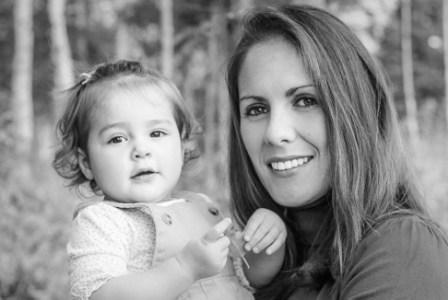
Catarina Owen was born and raised in São Paulo, Brazil and has immigrated to Canada in 2005. She has a Bachelor of Science in Animal Science from the University of Florida and a Master of Science in Animal Science from the University of Alberta. Catarina and her family moved to Norman Wells in 2011. She joined the Ɂehdzo Got’ı̨nę Gots’ę́ Nákedı in 2012 as an Environmental Assessment Researcher. Catarina works closely with Ɂehdzo Got’ı̨nę Gots’ę́ reviewing permitting and licensing applications. She also reviews and comments on wildlife research applications. In 2015, Catarina and her family relocated to Inuvik where she stayed for 5 years. In 2020 her family relocated to Moncton, she continues to provide support for the Board from afar. In her free time, Catarina enjoys spending time with her four kids, traveling, cooking food her kids won't eat and brewing kombucha.
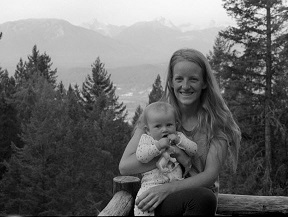 Melanie Harding has spent her career so far supporting community-led planning processes in Indigenous communities in British Columbia (Skidegate, Haida Gwaii), northern Ontario (communities part of Nishnawbe Aski Nation and Grand Council Treaty #3), and the Northwest Territories (Sahtú). Melanie moved to the Sahtú in 2018, first living in Fort Good Hope and now in Tłegǫ́hłı̨ (Norman Wells). Her focus is on supporting planning capacity in Indigenous communities and honouring ancient ways of planning in contemporary planning processes. Melanie has also been involved in regional and national processes to advocate for community development and nation-led planning in First Nations communities in Canada. Melanie is a Registered Professional Planner and Member of the Canadian Institute of Planners, and she has a Master’s Degree in Indigenous Community Planning from the School of Community and Regional Planning at the University of British Columbia. Melanie is a fourth generation settler originally from Ireland and she tries to perpetually reflect on her role and responsibilities in what is now known as Canada. Outside of work, Melanie is raising two small daughters her with partner in the most magical way possible, and they love to spend lots of time out on the land together
Melanie Harding has spent her career so far supporting community-led planning processes in Indigenous communities in British Columbia (Skidegate, Haida Gwaii), northern Ontario (communities part of Nishnawbe Aski Nation and Grand Council Treaty #3), and the Northwest Territories (Sahtú). Melanie moved to the Sahtú in 2018, first living in Fort Good Hope and now in Tłegǫ́hłı̨ (Norman Wells). Her focus is on supporting planning capacity in Indigenous communities and honouring ancient ways of planning in contemporary planning processes. Melanie has also been involved in regional and national processes to advocate for community development and nation-led planning in First Nations communities in Canada. Melanie is a Registered Professional Planner and Member of the Canadian Institute of Planners, and she has a Master’s Degree in Indigenous Community Planning from the School of Community and Regional Planning at the University of British Columbia. Melanie is a fourth generation settler originally from Ireland and she tries to perpetually reflect on her role and responsibilities in what is now known as Canada. Outside of work, Melanie is raising two small daughters her with partner in the most magical way possible, and they love to spend lots of time out on the land together
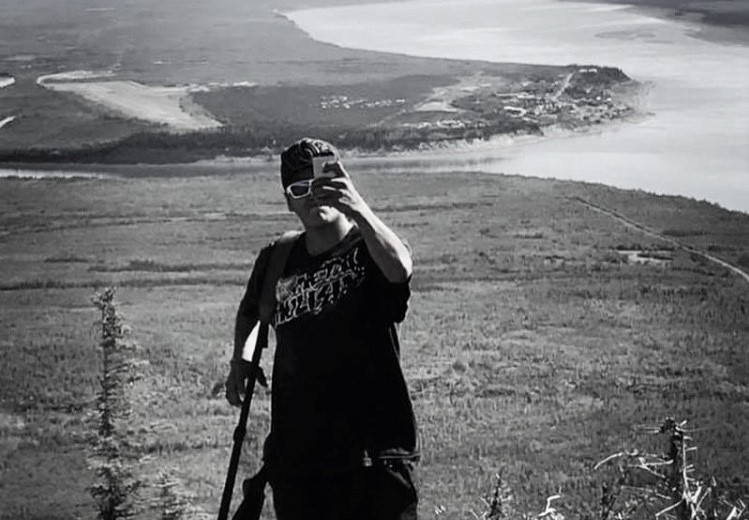 Jonathan Yakeleya is from Kalo Tue (Willow Lake), where he spends most of his time hunting, trapping, and fishing. He lives in Tulı́t'a. Jonathan has participated in various research and monitoring projects such as the Winter Track Survey, Mackenzie Valley Highway Project, Bear River Bridge Project, Caribou Scat Sampling, and the Canol Trail Wire Cleanup and Remediation Project. He enjoys being out on the land and visiting new campsites to learn about the history and knowledge of every location. Jonathan believes that Elders passing their knowledge to the younger generations is key to our future for having a strong relationship with the wildlife and environment.
Jonathan Yakeleya is from Kalo Tue (Willow Lake), where he spends most of his time hunting, trapping, and fishing. He lives in Tulı́t'a. Jonathan has participated in various research and monitoring projects such as the Winter Track Survey, Mackenzie Valley Highway Project, Bear River Bridge Project, Caribou Scat Sampling, and the Canol Trail Wire Cleanup and Remediation Project. He enjoys being out on the land and visiting new campsites to learn about the history and knowledge of every location. Jonathan believes that Elders passing their knowledge to the younger generations is key to our future for having a strong relationship with the wildlife and environment.
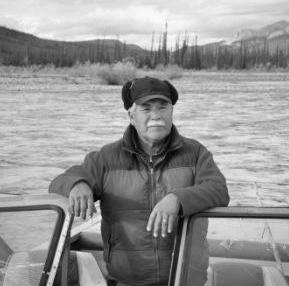 Leon Andrew is a Shúhtaot'ı̨nę elder with the Tulı́t’a Dene Band. He is our Research Director and Chair of the Nę K’ǝ Dene Ts'ı̨lı̨ (Living on the Land) Forum. He served as a Special Advisor to the Ɂehdzo Got’ı̨nę Gots’ę́ Nákedı (Sahtú Renewable Resources Board) for many years. He has been an advisor to Aboriginal Affairs and Northern Development Canada and the Government of the Northwest Territories on Transboundary Water negotiations with Alberta. Leon was an Access and Benefits negotiator and served on the Canol Heritage Trail Committee for the Tulı́t’a District during 2004-2006. He has also served on the Board of the Tulı́t’a Land and Financial Corporation. Leon has provided his research expertise on numerous traditional knowledge studies, assisted and advised GNWT Archeologists from the Prince of Wales Museum, and is also an experienced interpreter in Dene and English languages. He was an active trapper in the Tulı́t’a area and has first-hand experience of both the positive and negative effects of exploration activities on the environment and traditional economy of the Northwest Territories.
Leon Andrew is a Shúhtaot'ı̨nę elder with the Tulı́t’a Dene Band. He is our Research Director and Chair of the Nę K’ǝ Dene Ts'ı̨lı̨ (Living on the Land) Forum. He served as a Special Advisor to the Ɂehdzo Got’ı̨nę Gots’ę́ Nákedı (Sahtú Renewable Resources Board) for many years. He has been an advisor to Aboriginal Affairs and Northern Development Canada and the Government of the Northwest Territories on Transboundary Water negotiations with Alberta. Leon was an Access and Benefits negotiator and served on the Canol Heritage Trail Committee for the Tulı́t’a District during 2004-2006. He has also served on the Board of the Tulı́t’a Land and Financial Corporation. Leon has provided his research expertise on numerous traditional knowledge studies, assisted and advised GNWT Archeologists from the Prince of Wales Museum, and is also an experienced interpreter in Dene and English languages. He was an active trapper in the Tulı́t’a area and has first-hand experience of both the positive and negative effects of exploration activities on the environment and traditional economy of the Northwest Territories.
Recognized as one of the Sahtú Region’s most experienced researchers, Leon now serves in a leading capacity in various regional, national and international research programs involving research and monitoring: the NWT Water Stewardship Strategy, Mackenzie River Basin Board, the Canadian Mountain Network, Northern Water Futures, and Ărramăt: Biodiversity Conservation and the Health and Well-being of Indigenous Peoples (a network proposed to the New Frontiers in Research Fund of Canada’s research Tri-Agency). He represents the SRRB on the NWT Conference of Management Authorities and the NWT Species At Risk Committee.
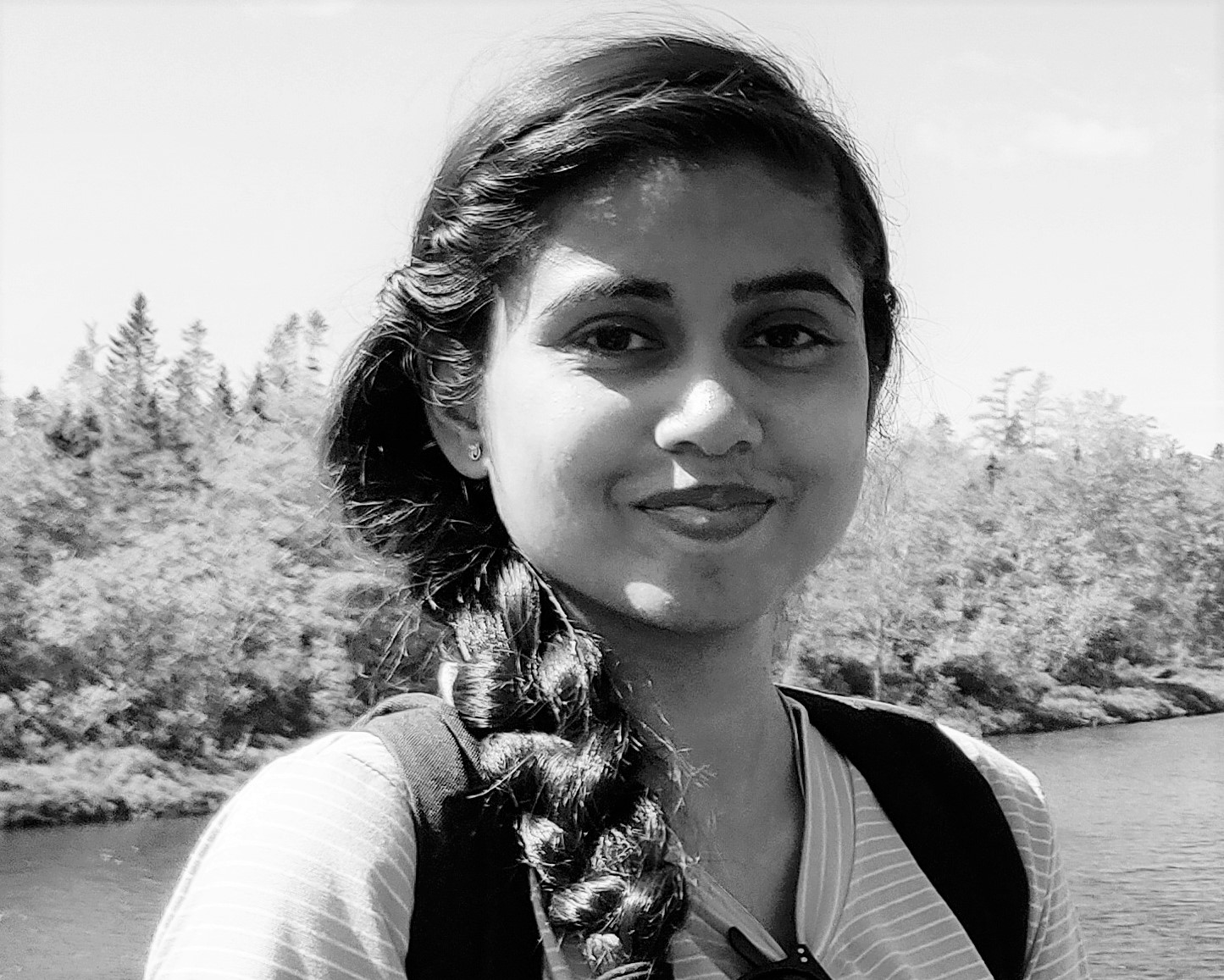 Manisha Singh was born and brought up in Uttar Pradesh, India. Growing up around forest and diverse wildlife was fundamental to shaping her interest in nature and natural resources. During her Master of Forestry degree in India, she conducted extensive research on an endemic deer species, Rucervus eldii eldii, which inhabits the world’s only floating national park, Keibul Lamjao national park, Manipur. Aspired by the beauty of nature and striving to work towards sustainable management, she moved to Halifax, Canada to enroll in the Dalhousie University’s Master of Resource and Environmental Management program in 2019. Her degree provided her with a broad overview of different perspectives and the Indigenous ways of knowing, which demonstrates the depth of knowledge present across Indigenous communities and highlights every individual’s responsibility to live sustainably and harmoniously with the environment. She aims to develop her understanding of Indigenous knowledge further and work with the Sahtú community to help achieve the vision Ɂehdzo Got’ı̨nę Gots’ę́ Nákedı (Sahtú Renewable Resources Board). Manisha joined the SRRB team in 2021.
Manisha Singh was born and brought up in Uttar Pradesh, India. Growing up around forest and diverse wildlife was fundamental to shaping her interest in nature and natural resources. During her Master of Forestry degree in India, she conducted extensive research on an endemic deer species, Rucervus eldii eldii, which inhabits the world’s only floating national park, Keibul Lamjao national park, Manipur. Aspired by the beauty of nature and striving to work towards sustainable management, she moved to Halifax, Canada to enroll in the Dalhousie University’s Master of Resource and Environmental Management program in 2019. Her degree provided her with a broad overview of different perspectives and the Indigenous ways of knowing, which demonstrates the depth of knowledge present across Indigenous communities and highlights every individual’s responsibility to live sustainably and harmoniously with the environment. She aims to develop her understanding of Indigenous knowledge further and work with the Sahtú community to help achieve the vision Ɂehdzo Got’ı̨nę Gots’ę́ Nákedı (Sahtú Renewable Resources Board). Manisha joined the SRRB team in 2021.
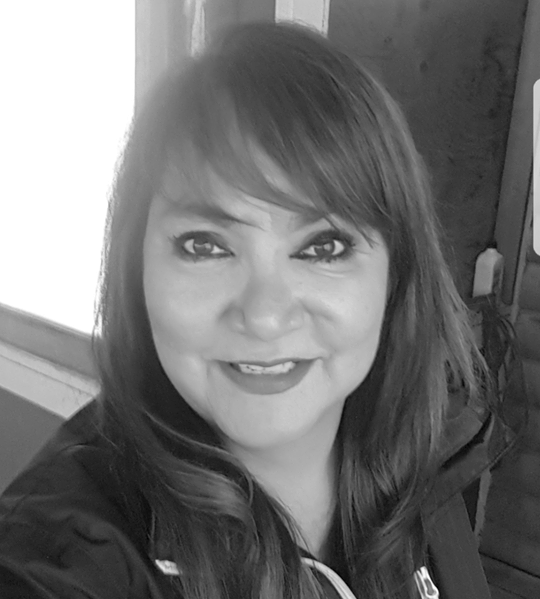
Lori Ann Lennie is a member of the Fort Norman Métis Nation. She is the longest serving staff member Ɂehdzo Got’ı̨nę Gots’ę́ Nákedı, having worked with the Board since 2000. Over the course of her work, she has taken various courses in bookkeeping, accounting, financial management, computer skills, Aboriginal law, and human resources management. She is actively involved in leadership in her home community of Tulı́t’a, serving on the Métis Land Corporation Board and Hamlet Council.
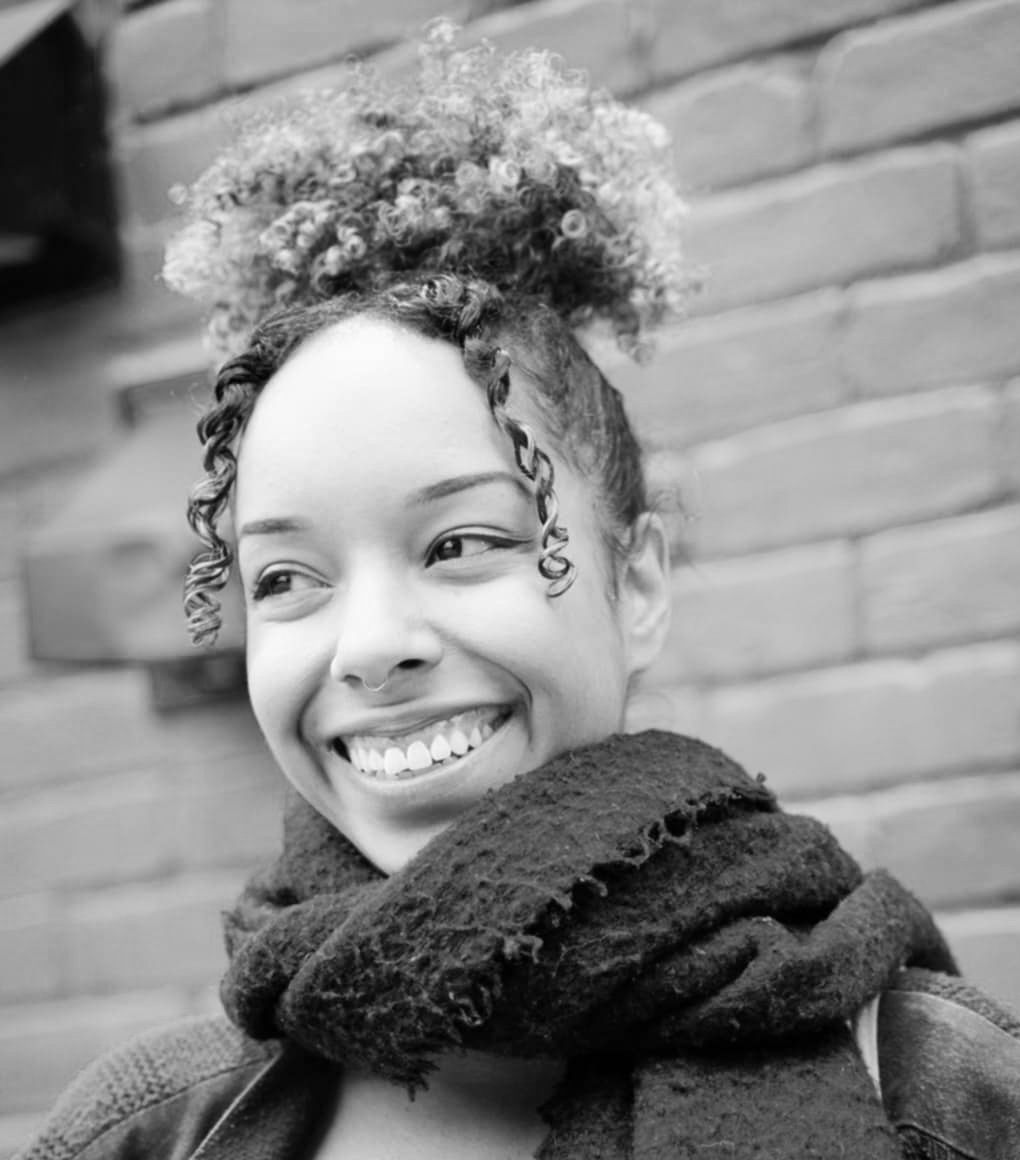 Maylinda graduated from the University of Ottawa with a Bachelor’s degree in Nutrition Sciences. She worked as a registered dietitian for eight years before completing a Master’s degree in Environmental and Global Health from the Université de Montréal. She has professional experience in public health, with a background that spans academic, community, clinical, and corporate settings. She is deeply passionate about community-based initiatives and social justice issues, including environmental health, food security, systemic racism, ableism, and health equity. She embraces feminism and believes that the well-being and freedom of all is essential to our own.
Maylinda graduated from the University of Ottawa with a Bachelor’s degree in Nutrition Sciences. She worked as a registered dietitian for eight years before completing a Master’s degree in Environmental and Global Health from the Université de Montréal. She has professional experience in public health, with a background that spans academic, community, clinical, and corporate settings. She is deeply passionate about community-based initiatives and social justice issues, including environmental health, food security, systemic racism, ableism, and health equity. She embraces feminism and believes that the well-being and freedom of all is essential to our own.
Born in Québec, Maylinda lived most of her life in Ontario, where she learned to speak English fluently. With her mother being Haitian and her father French Canadian, her mixed heritage has been a defining factor in her ongoing quest for identity and self-discovery. She believes in the power of joy, community and knowing one’s history as a means of resistance against systems of oppression. Maylinda is kind, curious, empathetic, optimistic, and creative. She seeks to make the world a better place by being authentic, humble, intentional and by empowering those she encounters.
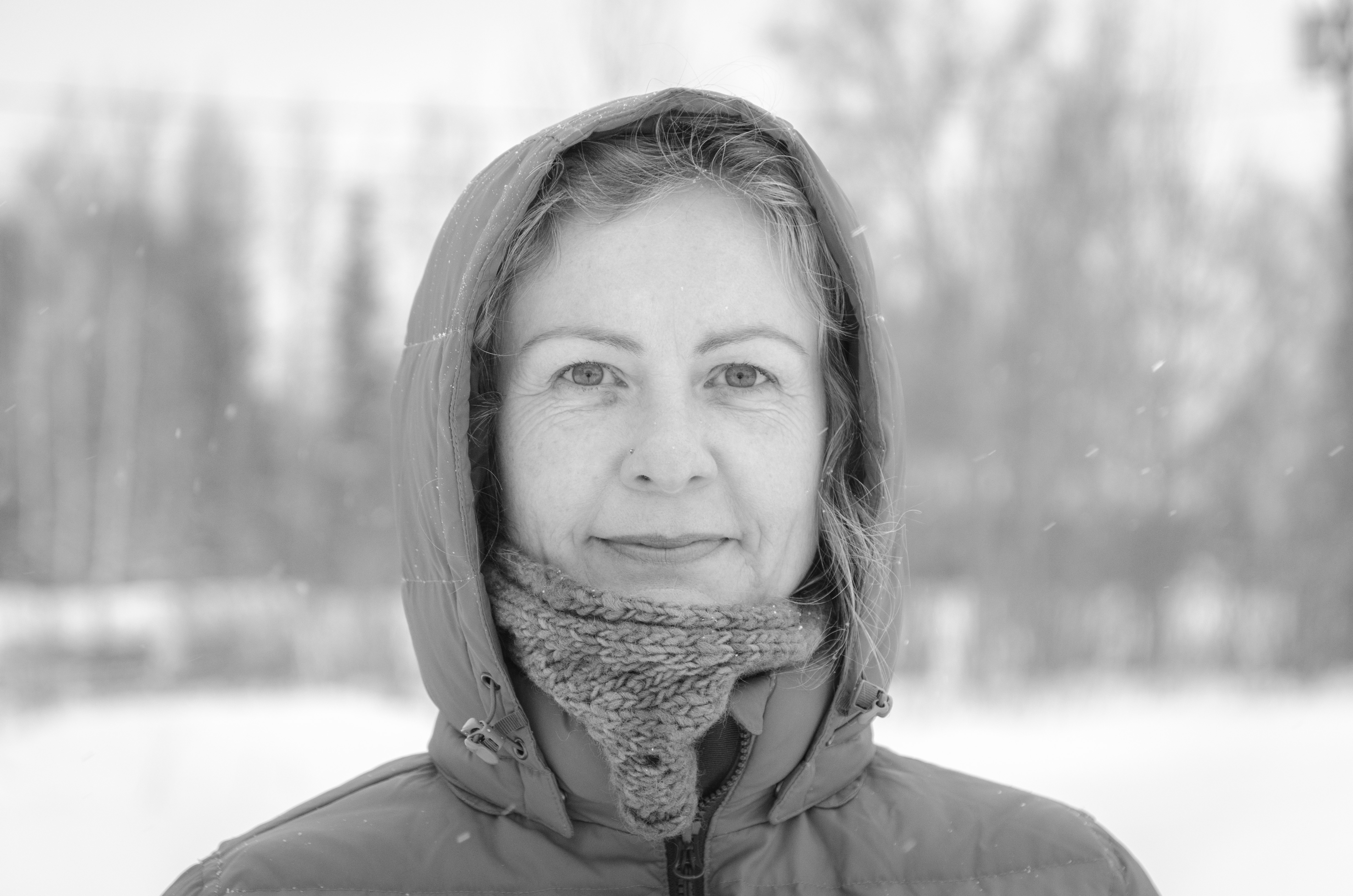
Dr. Colin Macdonald has over three decades of research experience in environmental toxicology, much of it in northern Canada. His first northern experience was on north Baffin Island, where he studied the accumulation of the metals in the diets of ringed seals. This led to a project studying pesticides and other contaminants in lakes in Ontario at Trent University and the effects of man-made chemicals in wildlife at the National Wildlife Research Center in Gatineau, Québec and at Whiteshell Laboratories in Pinawa, MB. His research included projects on historic radiation like cesium-137 and other contaminants in barren-ground caribou, fish and other wildlife species. He has been an independent consultant since 1998 and worked on the assessment of contamination in plants, animals, fish and vegetation at Port Radium, Sawmill Bay, Silver Bear Mines, Contact Lake and other abandoned mine sites to the east of Great Bear Lake. He provides advice to the Sahtú Renewable Resources Board on issues related to the permitting of projects, reviews project reports, and advises on technical issues relating to renewable resources and environmental quality in the Sahtú. He lives in Pinawa, Manitoba.
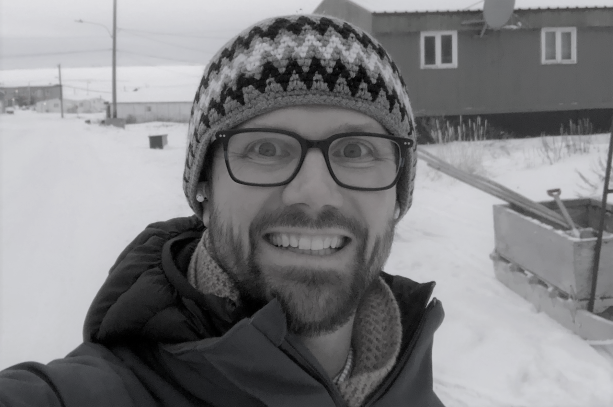 Bruce McRae (McRae Law) serves as tribunal counsel for co-management boards under modern land claims in the Northwest Territories and Nunavut. Bruce provides advice on administrative, Aboriginal and Environmental law. Bruce is called to the bars of Nunavut (2015) and the Northwest Territories (2021). Bruce went to law school at the University of Toronto (JD, 2014) with a pre-law undergraduate at the University of Alberta (BA, 2001).
Bruce McRae (McRae Law) serves as tribunal counsel for co-management boards under modern land claims in the Northwest Territories and Nunavut. Bruce provides advice on administrative, Aboriginal and Environmental law. Bruce is called to the bars of Nunavut (2015) and the Northwest Territories (2021). Bruce went to law school at the University of Toronto (JD, 2014) with a pre-law undergraduate at the University of Alberta (BA, 2001).
Prior to founding McRae Law, Bruce was in-house counsel to the Government of Nunavut and later the Qikiqtani Inuit Association, the Inuit organization for the Baffin Island area. His work included proceedings of the Nunavut Planning Commission, the Nunavut Water Board and the Nunavut Impact Review Board. Bruce is Section Chair for the Environment, Energy and Resource Law (EERL) Section of the CBA Nunavut Branch, and serves on the Board of Directors for the Arctic Renewables Society. Before law, Bruce worked for the International Committee of the Red Cross in the Middle East and Asia, an experience that informs his approach to cross-cultural dialogue. Bruce lives in Ottawa.